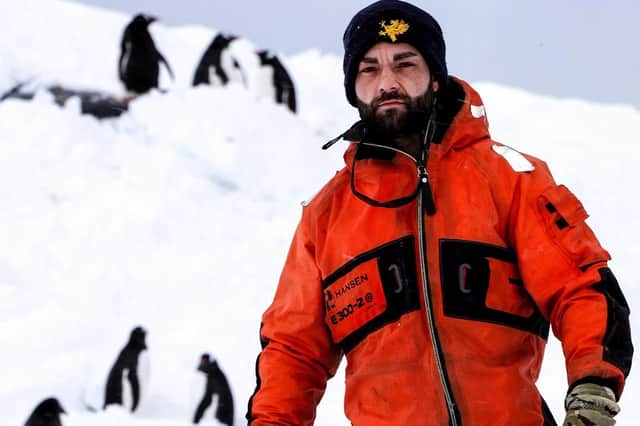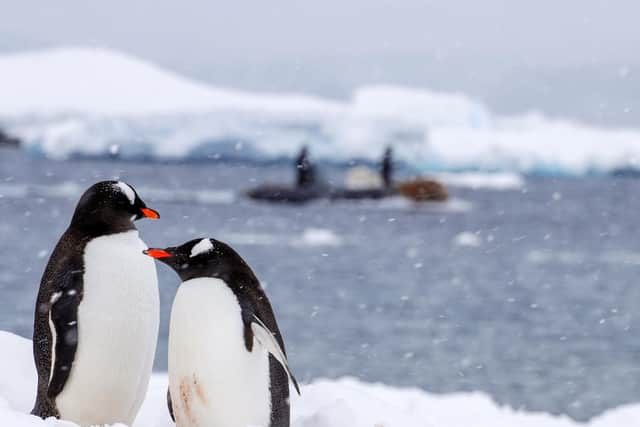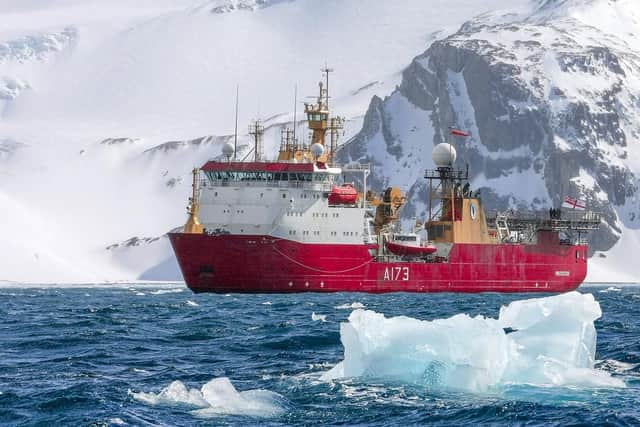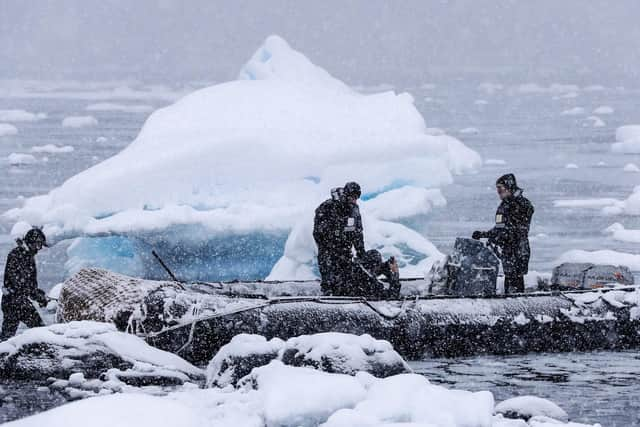Royal Navy sailors spend time chilling with penguins in the Antarctic on scientific voyageÂ


The ship's crew have been enjoying the chance to get up close and personnel with Gentoo penguins in the frozen wastes of Port Lockroy, a remote scientific outpost off the Antarctic peninsula.
It comes as the former Portsmouth-based icebreaker begins her latest season supporting scientists in the icy continent.
Advertisement
Hide AdAdvertisement
Hide AdProtector is on a five-year mission to make Antarctic waters safer for ships to navigate seas and unlocking the isolated region's secrets.


She had to smash her way through ice to reach the British Antarctic Survey base at Port Lockroy, located on an island off the Antarctic peninsula around 900 miles from the Falklands.
The isolated base is home to the southernmost post office in the world and an enormous colony of Gentoo penguins.
Protector's crew offloaded more than two and a half tonnes of supplies for the scientists '“ work which had to take place without disturbing the colony as the birds.
Advertisement
Hide AdAdvertisement
Hide AdMission complete, Protector headed north for Deception Island, a popular destination for all cruise ships operating around Antarctica: it's the only active volcano on the planet which you can sail into, with a narrow gap for entry and exit.


'˜It's a truly breathtaking location '“ and a unique location for those on board,'Â said Captain Marc Rodrigues-Bernet, an army officer who's acting as
Protector's linguist/interpreter. '˜We spent two days encircled by a halo of volcanic rock.'
A few of the ship's company went ashore for a walk on the black earth and encounter the seal population '“ for some this was their first experience of Antarctic '“ hydrographic experts took numerous readings and Protector's dive team braved the cold to perform a practice plunge in near-sub-zero waters.
Advertisement
Hide AdAdvertisement
Hide Ad'˜This is the furthest I have ever travelled from home and the snow and animals are extremely pretty,' said Sub Lieutenant Hannah Crowson.


From Deception, the Devonport-based ship headed north via Ester Harbour in the South Sandwich Islands to Elephant Island, where legendary explorer Ernest
Shackleton and his men sheltered after their ship, Endeavour, was crushed in the ice in 1916.
Today's sailors and marines held probably the most southerly act of remembrance for those killed in the Great War, in particular the three members of Shackleton's party who survived their ordeal on the ice only to be killed serving King and Country.
Advertisement
Hide AdAdvertisement
Hide Ad'˜Every one of the ship's company is aware of how fortunate they are to be on this ship, carrying out exhilarating work in otherwise-unreachable areas, but that pales in comparison with the gratitude we owe the World War One generation,' Captain Rodrigues-Bernet added.